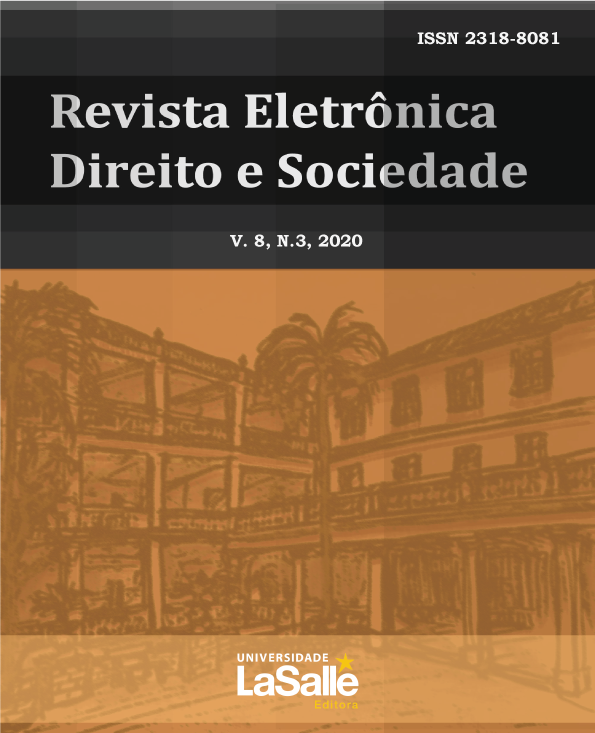Criminology and punitive selectivity in Brazil: from biological racism to the labeling approach
DOI:
https://doi.org/10.18316/redes.v8i3.5484Abstract
O artigo perspectiva, a partir da criminologia, a temática da seletividade punitiva no Brasil como um fenômeno que integra uma verdadeira política de Estado que resulta do racismo estrutural que subjaz ao modo como se organiza a sociedade brasileira. Parte-se do seguinte problema de pesquisa: em que medida o racismo estrutural se afigura – a partir da análise empreendida por diferentes escolas do pensamento criminológico – como chave de compreensão das práticas punitivas seletivas no Brasil? O texto encontra-se estruturado em três seções: na primeira, abordam-se as teorias das Escolas Criminológicas que mais “contribuíram” para a solidificação dos estigmas atribuídos aos indivíduos pertencentes às camadas subalternizadas da sociedade brasileira; na segunda, a partir da teoria de Edwin Sutherland acerca da criminalidade do colarinho-branco e da cifra oculta da criminalidade procura-se evidenciar os processos de refração que medeiam a prática delitiva e a efetiva condenação do infrator, analisando-se os diversos fatores que impactam nesses processos; na terceira, procura-se, a partir da Criminologia Crítica e do labelling approach, demonstrar como as teorias biologistas de corte lombrosiano ainda ecoam no âmbito das práticas punitivas brasileiras, evidenciando a seletividade punitiva como manifestação do racismo estrutural que subjaz ao modelo de rígida hierarquização social adotado no país desde os seus primórdios. A pesquisa foi perspectivada a partir do método hipotético-dedutivo.Downloads
Published
Issue
Section
License
Authors who submit their manuscripts for publication in the “REDES” Magazine agree to the following terms:
The authors claim to be aware that they retain copyright by giving “REDES” the right to publish.
The authors declare to be aware that the work submitted will be licensed under the Creative Commons Non-Commercial Attribution License which allows article sharing with acknowledgment of authorship and publication in this journal.
The authors declare to be aware that by virtue of the articles published in this journal have free public access.
The authors declare, under the penalty of the law, that the text is unpublished and original and that they are aware that plagiarism has been identified, plagiarized authors will be informed - willingly, to take legal action in the civil and criminal sphere - and, plagiarists will have their access to the magazine blocked.
The authors state that - in case of co-authoring - all contributed significantly to the research.
Authors are obliged to provide retractions and (or) corrections of errors in case of detection.
The authors are obliged not to publish the text submitted to “REDES” in another electronic journal (or not).
The Electronic Journal Law and Society - REDES - is licensed under a Creative Commons License. Attribution-NonCommercial 4.0 International.Based on work available at "http://revistas.unilasalle.edu.br/index.php/redes/about/submissions#copyrightNotice".
Permissions in addition to those granted under this license may be available at http://creativecommons.org/.

